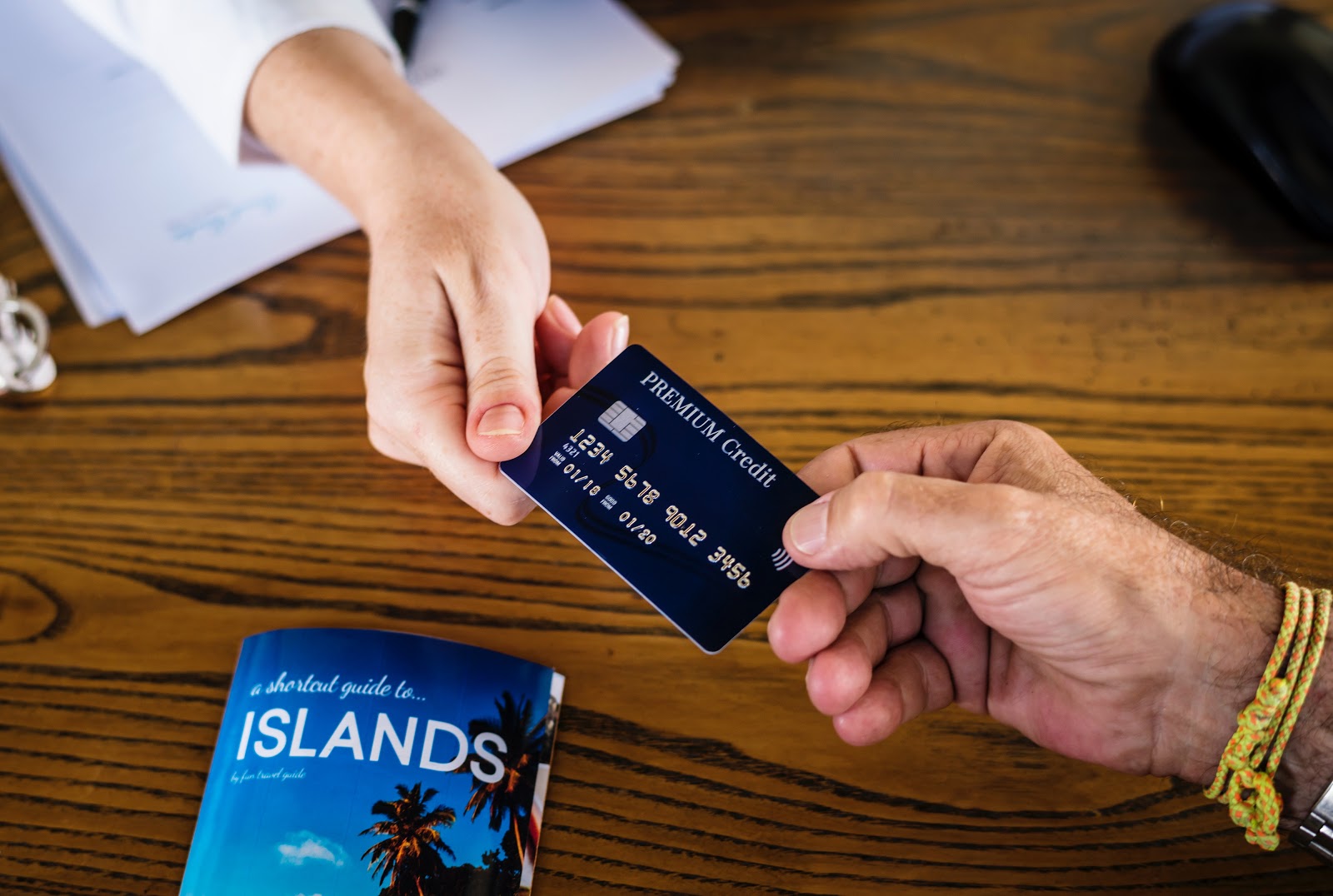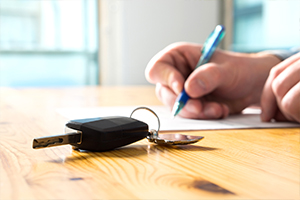How Tracking Income & Monthly Expenses Takes the Stress out of Banking
To live a stress-free life, someone might utter the phrase, “don’t sweat the small stuff”, or an expression that’s close to it. However, that same way of thinking can harm you financially. Think about all the stories of famous people who paid no attention to their finances, losing much if not all of the fortune they worked so hard for. “I have little to lose” you might say, but you’ll put yourself in a position of power once you start tracking your income and monthly expenses, regardless of what you have. It’s a practice that will save you from the financial problems so many face today. And it’s not difficult.
You gain control
Financial freedom, the elusive goal that most want but don’t truly understand, comes when you gain control over the flow of your money. And you can’t get there if you’re not actively watching it. It’s like air traffic control – could you imagine what would happen if there weren’t people to keep track of the planes landing and taking off at an airport? You probably don’t want to picture that, but you’d no doubt agree that chaos would ensue. Likewise, failing to keep track of your money leaves you in the dark, and surprises in the form of loan denials or collection calls may occur. The resulting effects on your credit would pull you further away from the financial freedom you seek.
You’ll see patterns
Here’s a question for you: Do you know exactly where your money goes? Apart from the obvious commitments, could you identify all the little charges and fees you’re paying? Some of you can. But a lot of you would be surprised if a teller or your financial advisor revealed where your hard-earned change is going. However, you can spare yourself from such shock. Tracking your monthly expenses and income will train your eye to see things that your mind can only guess.
Reading Between the Statements
- You’ll see your spending/saving habits – People often fall into debt because they assume they have more money than they truly have. Has a closing balance surprised you? You can prevent it from happening again by keeping a closer eye on your chequing, savings and credit accounts. Even if you are dealing with debt, knowing what your finances look like takes away the anxiety that comes without knowing how significant it is.
- You can plan better – The beauty of tracking your finances is the foresight it brings. When you see what’s flowing in and out of your accounts, you’ll have a more solid idea of what you can and can’t buy, along with how much you can save or invest.
- You may spot potential fraud – Your banking institution will no doubt alert you if they think someone has hacked into your account. However, it doesn’t hurt to stay on top of things yourself, and it’s also important to remember that some activities may slip past your bank’s radar. So don’t hesitate to sign in and check every so often (or if you’re old school, visit the teller in person).
You’ll Stay Out of Trouble
The more serious side of the issues are the consequences that can bite you if you’re not aware of your expenses. Some are acute while others stretch into the long-term, but they can all affect you in various aspects of your life. It’s true when they say money can’t buy happiness, however, happiness is fleeting when you’re always worried about money. Tracking your expenses along with your income will alleviate some of that stress.
Staying out of the red
- Avoid wondering whether you’ll get declined – There’s nothing worse than standing in line, looking at the debit
 machine while it processes your payment, praying it will say “approved”. It’s stressful and unnecessary. While it’s unwise to shop with low funds in your account, you can stay clear of uncertainties when shopping if you know how much money is available to you.
machine while it processes your payment, praying it will say “approved”. It’s stressful and unnecessary. While it’s unwise to shop with low funds in your account, you can stay clear of uncertainties when shopping if you know how much money is available to you. - Avoid late fees and penalties – Here’s something that happens all too often: A person goes to the gym and owes an outstanding balance, or their closing balance is unusually low. They forget to pay a bill by a certain date, perhaps spending on a luxury instead of necessity. The individual wasn’t keeping track of their money, where it needed to go, and thus, spent it on the wrong things, resulting in late fees or penalties. The mere act of logging into your account and checking (excuse the pun) can help prevent this from happening.
- Avoid credit score dips – Ultimately, the most serious consequence of not paying attention to your income and expenses, whether it’s monthly or even weekly, can lead to credit score trouble. If you’re always missing payments, dealing with late fees, and plunging deeper into debt, a ripple effect will occur and sink your credit rating. So it helps to stay on top of your accounts early on.
Tips for Tracking
Earlier, we mentioned how the practice of tracking your money isn’t difficult. It’s quite simple. There are dozens of tools and techniques out there to help you stay on top of your financial game, many of which are getting better and smarter. So don’t overlook them.
Online banking
Long gone are the days where you HAVE to wait in line at the bank – the bank is now at your fingertips without having to stare at the back of someone’s head. Just log into your account and you can take care of everything. Fortunately, all the info you need to see is right there before you – your statements, balances and even your goals (for investments and savings). Many banks also have financial calculators as well to help you with your planning.
Financial apps
 The ultimate assistance in terms of money management nowadays are financial apps. They offer simplicity and convenience at next to nothing (in fact, most are free). They’re basically the same service as your online banking, and they offer the same features. There are also apps that allow you to tackle specific financial concerns that your online banking may not cover. So if you have a smartphone or tablet, which most of you do, look through your app store to find the tools you need. There are plenty of choices out there.
The ultimate assistance in terms of money management nowadays are financial apps. They offer simplicity and convenience at next to nothing (in fact, most are free). They’re basically the same service as your online banking, and they offer the same features. There are also apps that allow you to tackle specific financial concerns that your online banking may not cover. So if you have a smartphone or tablet, which most of you do, look through your app store to find the tools you need. There are plenty of choices out there.
Receipts & Statements
Despite it being 2016, there’s an old school technique for tracking your expenses that will never go out of style. That’s  checking your receipts and paper statements. Don’t see it as a pain in butt – if you want those tax credits, deductions or run a business, you’ll have to do it anyway. Collecting your receipts is a good way to keep track of how much you’re spending, and how often you’re doing so. And in the event of a power outage or dead battery, they’re still accessible!
checking your receipts and paper statements. Don’t see it as a pain in butt – if you want those tax credits, deductions or run a business, you’ll have to do it anyway. Collecting your receipts is a good way to keep track of how much you’re spending, and how often you’re doing so. And in the event of a power outage or dead battery, they’re still accessible!
Make Sense of Every Expense
It’s true that an enjoyable life isn’t possible if you’re always worrying about things. However, you can never be too careful with your finances. You don’t have to drive yourself crazy attempting to track every single cent that flows in and out of your bank account. But you shouldn’t treat your income and monthly expenses as afterthoughts. Getting into the habit of watching your finances can relieve much of the uncertainty and anxiety that comes with money management. So if it’s not something you do already, give it a go. You will see how much more control you will have over your banking.






